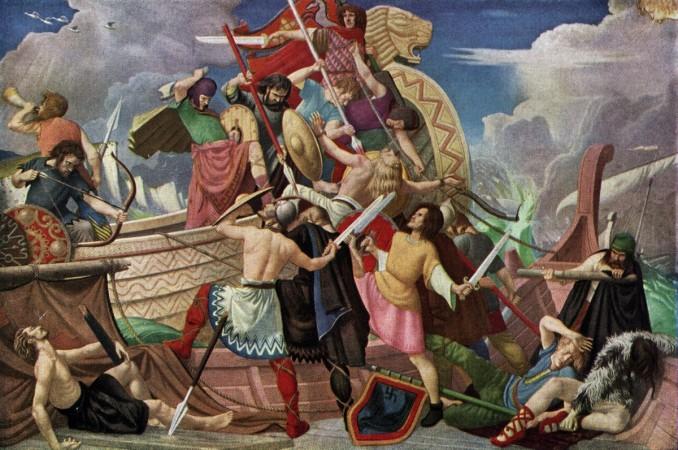
A mass graveyard of an ancient Viking army, who invaded England in the mid-ninth century, had been discovered almost 30 years ago. The invasion of the Viking armies has been cited as one of the significant historical events in the creation of England. Yet for decades, their identity could not be traced due to the lack of technology.
Recently, a group of researchers at the University of Bristol in England has unravelled the mystery as they think that they have found the evidence of nearly 300 Viking warriors.
The burial site was first discovered in the 1980s in Repton, Derbyshire. Known as the Great Heathen Army, they were believed to have spent winters in Derbyshire, England from around 873 AD to 874 AD.
However, the radiocarbon dating revealed that the remaining are too old to be the Viking soldiers. It was believed that the Vikings invasion began in England in 866, but the lead author of paper Cat Jarman, a professor of archaeology and anthropology at the University of Bristol, said that proving it was difficult.
She told Newsweek that the carbon dates of a large number of the bones show that the bodies had been deposited in the burial ground over a period of thousand years.
"When we eat fish or other marine foods, we incorporate carbon into our bones that is much older than in terrestrial foods," Jarman is quoted saying in the University of Bristol press release.
"This confuses radiocarbon dates from archaeological bone material and we need to correct for it by estimating how much seafood each individual ate."
But there are other shreds of evidence too. While 20 percent of these skeletons were female, many of the others showed signs of violent injury too. Apart from that, lots of weapons were discovered too including axe and knives.
However, the discovery unveils the history of how England was created.
The Great Heathen Army, who is also known as the Great Viking army, had invaded the Anglo-Saxon kingdoms in 865 AD from the English Christians to establish a Viking state. But later they lost everything to King Alfred while they were trying to acquire his kingdom of Wessex. Alfred captured the Viking territories by expanding his own rule.
"This was a key part in the story of how England was made," Jarman told the BBC. "The defeat of Anglo-Saxon kingdoms, the creation of a Viking state and Alfred's reaction to it were all major parts of this. It's echoes are still felt today."
"But because of the lack of physical evidence, it has not been given the attention it deserves."














